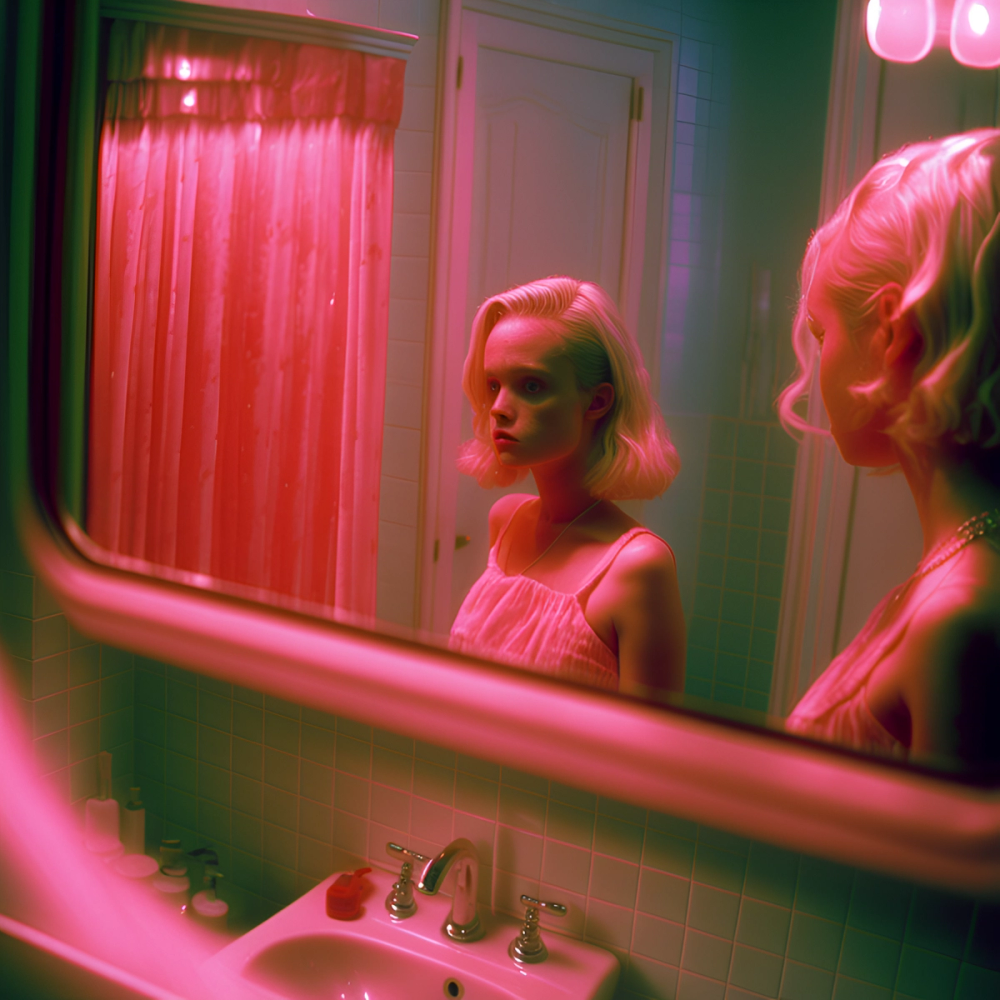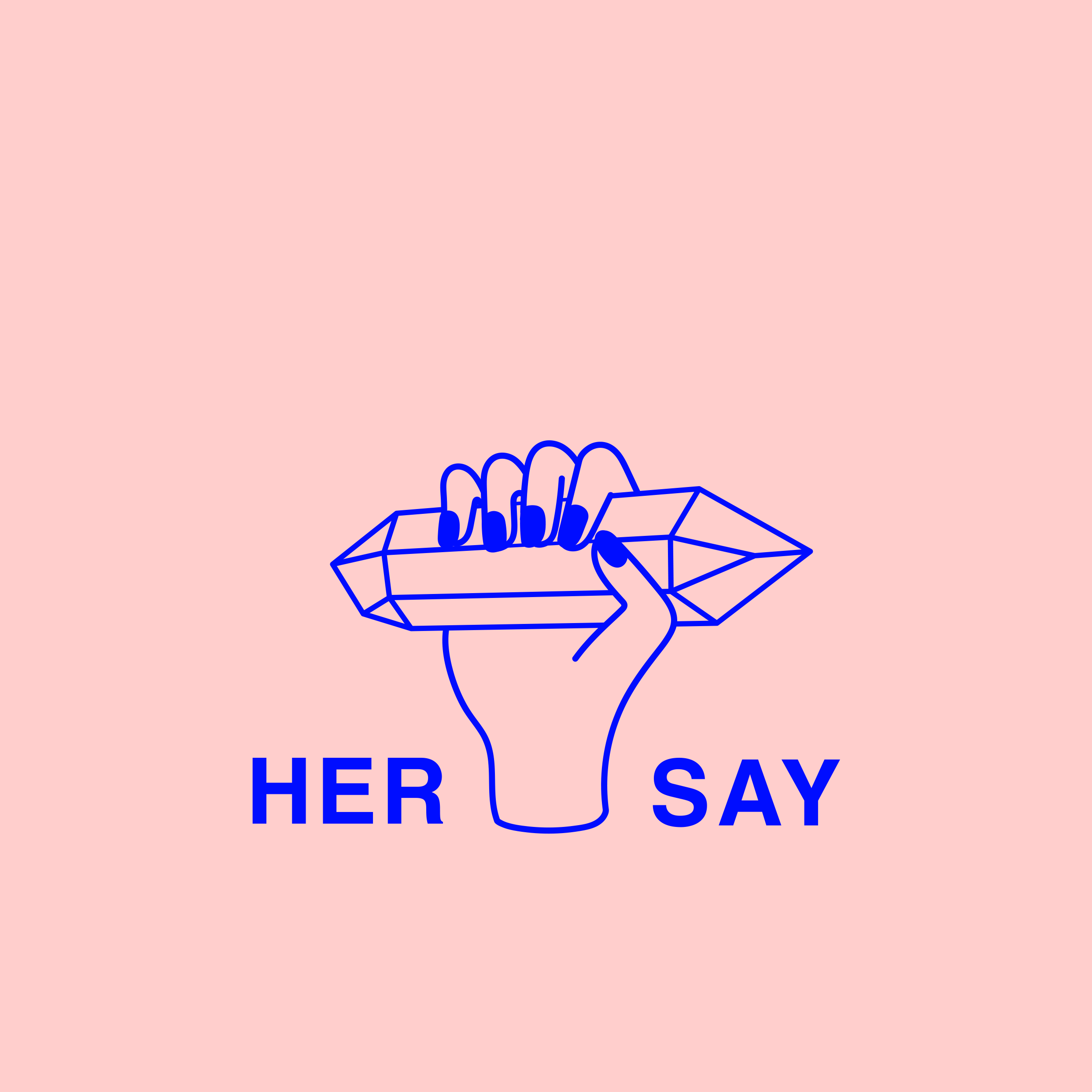As women, the balancing act we're expected to master feels dangerously close to impossible. Our biology still dictates that we alone carry the honor of giving life. Yet we’re also expected to match the tireless productivity of men, or risk being deemed lazy. To display superhuman health in an increasingly sick world. And to swallow life's blows with stoic grace.
And then of course, for many women, there's the monthly reckoning – the flood of unruly hormones coursing through our system, a reminder that despite society's best efforts to deny it, an untamed magic lies within us. But when we struggle to ‘stay in our box’ – the dark moods, bone-deep fatigue, even blistering rage – doctors are quick to diagnose disorders. More drugs, more suppression, more shame. Then comes nearly every woman's invisible best friend – Guilt. That persistent voice urging us to perk the fuck up and get on with it. To do anything we can to avoid being exposed as incompetent. Because god forbid we lose our cool and get branded emotional, hysterical, or psycho. So - we sanitize, we minimize and we numb in vain attempts to squeeze ourselves back into roles created by, dare I say it, men. But the reality is, some women don’t have the luxury of just getting on with it. For some, complex physiology and past traumas give hormones the right to hijack the hell out of their mental state every month without ransom.
Our dear friend Alana researches various women's health narratives for her PhD. Recently, she dedicated herself to interviewing women who are exploring magic mushrooms as a treatment for Premenstrual Dysphoric Disorder (PMDD). In short, PMDD is the extreme version of PMS. As mental health strains globally alongside expanding psychedelic research, vulnerable populations are accessing illegal medicine ahead of science. Curious to uncover what’s behind this rise in self-medication, I set out to better understand if there is truth in the power of these unregulated psychedelics. Could this be the secret weapon for ending hormonal hijacking?
This is a snapshot of Alana’s research in her personal crusade to help women reclaim their wild and wise voices within.

Photo by Noah Pharrell
Over the course of last summer, I interviewed 11 women with PMDD (Premenstrual Dysphoric Disorder). They shared inspiring and moving tales of their experimentation with psilocybin (the active compound in magic mushrooms) to alleviate their symptoms. This was often a ‘last chance’ attempt after grueling trial and error periods with medication, up to two decades of being misdiagnosed and misunderstood, and / or facing the unwanted possibility of surgical or chemical menopause.
There is no denying the severity of PMDD for the women who experience it. Described by one person as feeling like you are trapped inside your own body which was torturing itself, or like a bad trip by another. It is often likened to Jekyll and Hyde or living life as a divided self. PMDD symptoms only occur after ovulation and ease when bleeding commences when a return to 'normal' self resumes. The monthly psychological symptoms of PMDD (1) make for a destabilizing life, especially when symptoms worsen with stress and hormonal transitions such as birth and perimenopause. Consistent engaged work, healthy parenting and relationships are reported as very difficult to maintain. With 1 in 20 women estimated to be affected by PMDD (2) and suicide attempt rates as high as 34% among these women (3), innovative treatments are desperately needed.
The women interviewed varied dramatically in their approach to using magic mushrooms in timing, dose and environment, preparation, and time for post understanding. Whether they opted for a moderate functional dose or more deep-dive psychedelic journeys taking place over a year, their collective stories highlighted a similarity for these women. The antidote to this isolating and destabilizing condition appears to be strikingly human; and not always the medicalised approach they were conditioned to believe. Community and kinship and being genuinely seen and heard, was repeatedly shared throughout the interviews as a profound catalyst for deep self acceptance. Which in turn supported a more integrated self.
PMDD symptoms were significantly reduced for most, including suicide ideation for those who experienced it. More research is really needed to draw any conclusions on this, and those suffering with suicidal ideation should seek urgent medical advice.
Among other benefits, people spoke of barriers being unlocked for repressed grief activating cathartic healing and others experienced intense love and connection they never had before. Women were changing the way they viewed the world, and themselves in it. Many were inspired by nature and what we can learn from these plants and some adopted views from non-Westernized cultures' socio-centric ethos rather than an ego-centric one they didn’t feel at home in.
The potential for psilocybin to offer relief appears to be very promising, yet it’s clearly not straightforward. Research needs to go beyond the current focus and not rely on those with the conditions self-advocating and experimenting. People are increasingly self-medicating with magic mushrooms and they need honest guidance. Expecting mushrooms to be a quick fix or a magic wand, can actually make things worse. They were noted frequently as being only one tool in a box of many for these women. People who took larger doses strongly urged others to not do this alone, be prepared, and seek experienced trauma informed support. For some these journeys came with terrifying exposure of past traumas, and sometimes an inability to integrate them when they did too much too soon. For others – their PMDD traits were illuminated in all their painful glory during their trips as fear, resistance, trust, comparison, shame, guilt, control and deep sadness. These showed up as a microcosm of what needed working on in their whole life – not something that was only confined to the luteal phase of their cycle. While this delayering was at times brutal, eventually it provided the means to bring the unconscious to light and heal. Feelings they may never have accessed otherwise. During their trips, they were often reminded of the persistent shame and fear that envelopes the entire experience of having PMDD. Yet psilocybin supported them to also detach from it. This rare opportunity allowed forgiveness, love and appreciation of the whole self, shadows included.

Photo By Noah Pharrell
One woman spoke of going through many gut wrenching trips and tirelessly applying behavior change before she had enjoyable experiences. Others reported how hard this behavior change was once the glow of the trip had faded and life got busy. When internal belief systems have changed significantly and the ones in the ‘real world’ haven’t, it can be jarring. Some people were left in limbo, disappointment even. Symptoms come back. Even some new ones. Some were contemplating a return to anti-depressants and others were keeping an eye out for other options.
Ultimately, despite a mixed bag of approach and experiences, perspective and understanding of self, appeared to shift for all. It was clear that these women were doing things their own way and taking their health into their own hands, whether to stay in jobs they loved or change their entire worldview. This in itself created a sense of agency and control for them with a condition that so often manifested as a lack of control. They were also able to see where the pressure to fit into societal moulds and conform to certain expectations through conditioning and upbringing was damaging their health and relationships. Some women then chose to live in ways that suited them and their ‘unique condition,’ challenging the status quo and living in community, traveling, and working in their own ways.
It was expressed that a constant pursuit for productivity, achievement and ‘keeping up’ means we numb and treat and medicate. We forget how to truly listen to our fears, anger, our intuition and our sadness. We hide it away in order to fit in and spiritually-bypass our way to (temporary) reprieve and release. Psilocybin can open doors to allow for this listening. People interviewed were able to see links between their past, grandmothers and mothers, and to see that ‘this is not all mine’. The Psilocybin helped to alleviate the heavy individual weight people carried.
The interviews reiterated the urgent need for systemic change in our health systems, particularly for conditions like PMDD at the intersection of women’s reproductive and mental health. The misunderstanding, skepticism, and discrimination shared, appeared to reinforce the longstanding stigma and biases that dismiss women's illnesses as hysteria, with epistemic and testimonial injustice unfortunately more prevalent among women of color or those experiencing financial difficulty. When positive and empathetic encounters were experienced with health professionals, they were noted as meaningful in the overall journey to health.
Beyond outdated healthcare systems, the interviewees challenged the notion of PMDD as an individual "disorder," proposing it as more of a response to an imbalanced world and social disorder, resulting in their biological and psychological disruption. A detachment from nature's cycles and intergenerational wisdom forcing this tension further. They advocated for a systemic approach to untangle the root causes of PMDD, and better reflect its interconnected nature.
The questions were posed; What if instead of stifling and repressing ourselves to fit the 'good girl' archetype, we had outlets for our darkness from a young age? If society accepted the full spectrum of women’s emotional experiences rather than silencing anything outside the narrow bounds of acceptable behavior, would PMDD’s tortuous grip on women begin to loosen? If we were embraced in community instead of isolating ourselves when our wildness surfaced, would the swings even get so extreme?
Perhaps making room for our humanity in all its expression, lays at the heart of freeing ourselves.
THAT WAS 'HER SAY’… NOW WHAT'S YOURS? JOIN OUR CONVERSATION
Link to Complete Article:
https://blossomanalysis.com/topic/premenstrual-dysphoric-disorder/
Footnotes:
1. https://iapmd.org/about-pmdd
3. https://bmcpsychiatry.biomedcentral.com/articles/10.1186/s12888-022-03851-0
Links for more information:
https://psychonautwiki.org/wiki/Main_Page
https://www.womaninthebasement.com/
https://challengingpsychedelicexperiences.com/

